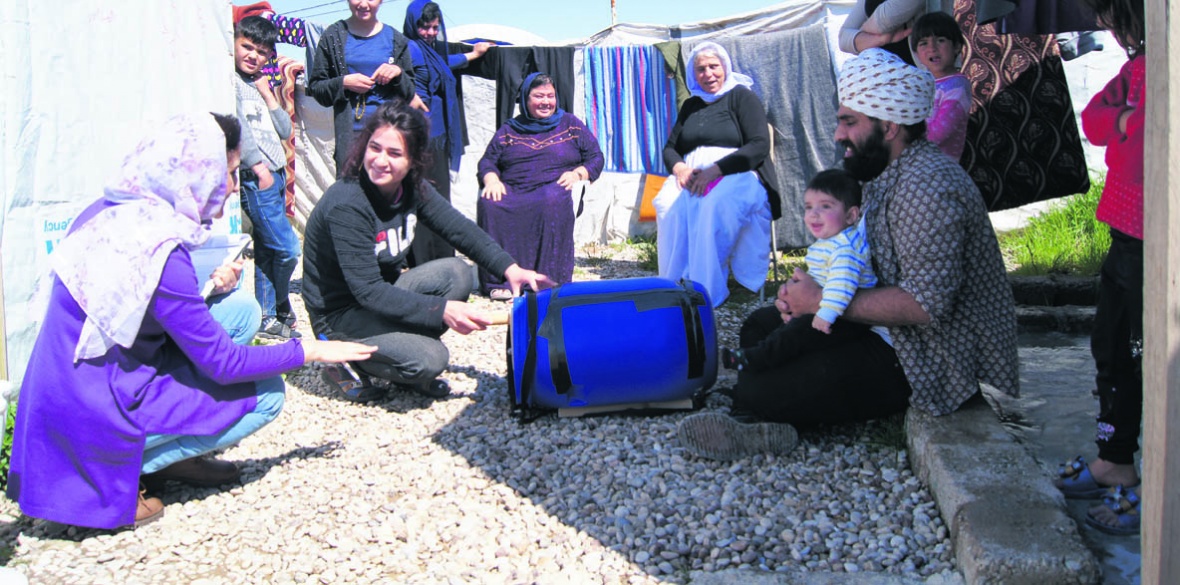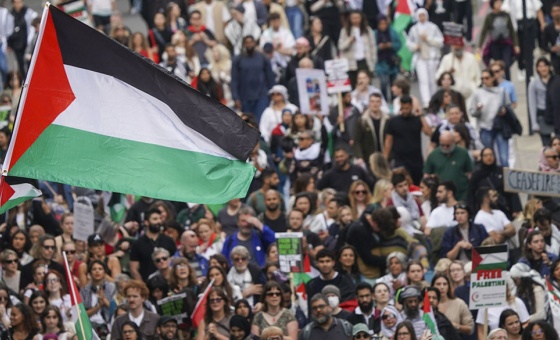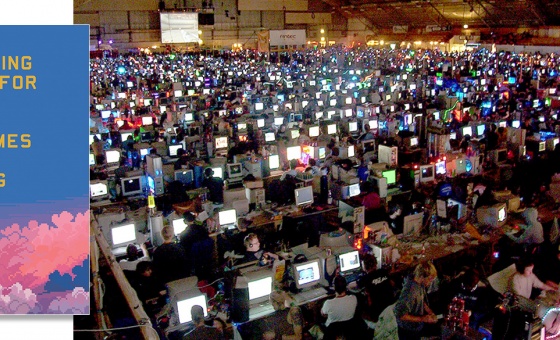This is the last article you can read this month
You can read more article this month
You can read more articles this month
Sorry your limit is up for this month
Reset on:
Please help support the Morning Star by subscribing here
LIFE-CHANGING washing machines invented by a British student are on their way to Kurdish Iraq to help displaced families living in water-scarce refugee camps.
Fifty of the low-cost devices, which use half the water needed for normal electric machines and run three cycles in just 15 minutes, will arrive in the Middle East this week.
Engineering student Nav Sawhney hopes his invention, called a Divya, will save water and improve the day-to-day lives of women and girls who are often burdened with washing clothes by hand.
The Bath University student said: “As well as saving time, the Divya is less labour intensive when washing clothes, meaning that the beneficiary does not have to crouch down for long periods of time, scrubbing and wringing out clothes.”
Using a Divya saves women and girls from experiencing chronic back and joint pain often caused by hand washing, he explained.
Mr Sawhney co-founded the Washing Machine Project with Alex Hughes last year in a bid to bring quick, easy and cheap washing to every corner of the globe.
The group says that 70 per cent of the world’s population does not have access to washing machines.
“What drives us forward is a common goal to make the world a better place with the skills we have,” he said. “The exciting thing is that we’re only just getting started.”
In March this year the pair visited four camps for refugees living in Kurdish Iraq to test two prototypes with families belonging to the Yazidi minority.
According to Care International, a humanitarian agency that operates in Iraq, around 1.8 million people are internally displaced in the country’s northern region.
The engineers found that the camps only receive water every three to four days, which has to be driven in by lorry by the UN.
This is a costly process, made worse by the fact that so much is needed to run electric washing machines.
As a result, one of the main design goals of the Divya was to reduce the amount of water needed to wash clothes.
Now the improved machines are ready to be installed with the help of Oxfam. Mr Sawhney says this initial project will affect the lives of more than 500 people.
In addition to freeing up time for women and girls so they can receive an education, the Divyas also reduce the cases of skin conditions.
“The Divya limits the interaction of soap and Dettol/chlorine typically seen by the beneficiary using traditional methods,” he explained. “Meaning rashes or dry skin that are caused by prolonged interaction of the chemicals are no longer observed.”
Skin diseases are common in refugee camps where sanitation is poor and many people are forced to live in overcrowded conditions.
This year, British volunteer Ross Ireland started his own washing machine project on the Greek island of Lesbos to tackle rampant scabies in Europe’s biggest and worst refugee camp, Moria.
The Lava Project is the island’s first industrial laundry facility for refugees, washing and drying 1,600 bags of clothes and bedding every month for the camp’s most vulnerable residents.
“As the scabies mite migrates into clothes and bedding and lays eggs there as well as under the skin it’s an essential part of treatment to hot wash all clothes and bedding and wear clean clothes after treatment,” Mr Ireland told the Star.
He added that having access to washing machines not only improves sanitation but also “gives people back some dignity” while they are forced to wait in limbo.







